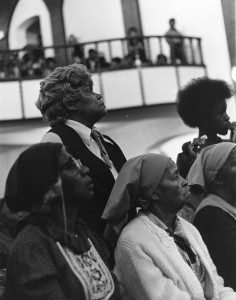
It has been thirty-five years since Jonestown life in the jungles of Guyana ceased; fifteen years since the beginning of the jonestown report. Twenty years have passed since I met Bobby Stroud and was personally introduced to his well-guarded past.
Upon hearing that jonestown report is retiring as a regular journal, I found myself reflecting on all that I have learned and thought about Peoples Temple and its members. I think I have read nearly everything that has been written on the subject, and one thing that strikes me is that some, well, a few of the researchers presented ideas that they truly felt explained what happened. The end. Some reported just the facts, as they interpreted them. Others were more interested in criticizing and casting all participants in the worst light possible, as if to assure us all that something like this could never happen again.
If there is one thing I have come to accept it is that studying Peoples Temple and Jonestown as a single phenomenon is folly. As much as I hate to use the “perfect storm” expression, there it is. Lots of different things were happening to different people all at the same time. I think that making sense of Jonestown – looking for one answer – is more like studying sociology or psychology and assuming there is a single set of answers to human behavior. If we learned nothing else, we have to realize that we saw a basic principle of psychology played out before us: Human behavior often has multiple causes – not just one. I explain it to my students this way: “If I bring cheesecake to class and slice it to share with my students, some will eat it because they are hungry. Others don’t want to be rude or they fear offending the professor. Still others just happen to like cheesecake… and someone will say ‘no thank you’.”
The people who still yearn for a single explanation for what happened thirty-five years ago must find the peace to accept the cheesecake answer. Some people were true believers; others ignorant. Some were trapped; others tired. Each of us must take away whatever lessons speak to us and try to help others understand. And to condemn the dead is meaningless.
I have talked with several survivors through the years; one of them is no longer living. Last year I was given an amazing gift that gave me a bit of closure with my research. My work with Peoples Temple is done – at least for now. The adult son of one survivor, now deceased, contacted me, because he had read some of what I have written here. What must it have felt like for him to find out that a stranger had hours and hours of audio recordings of his father’s voice, telling his story, in his own words?
That man had loved his son dearly but chosen to stay out of his life for a very long time. He felt he was too damaged and would only cause his son pain or harm of some kind. He was damaged, in a way. He had struggled for most of his post-Jonestown life. Off and on, he had been looking for ways to quiet the voices, numb the pain. I had the privilege of copying those recordings and sending them to the son – who now has children of his own. In his father’s own words, the son got to hear enough to better understand the choices his father had made. I hope it gives him the answers he needs.
Not too long before his death, the father tried to reconnect with his son, but it was really too late. The father was another casualty of Jonestown; it just took him longer to die. Some people who survive trauma strike back at living with resilience. Others throw themselves into work or family or something that gives their lives the meaning they seek. But a few strug gle endlessly, barely keeping their heads above water. My friend was one of those. I am better for having known him and having attempted to understand that which defies understanding.
After I put those recordings into the mail, I sat down and cried. I cried for my friend who has been gone for many years now. But mostly, I cried a sort of joyous puddle for having been given the chance to pass those recordings to that son.
I am glad the website will continue, even if the journal, as a regular publication, will not. Too many people these days have no clue what happened. We need to keep telling them because we must never forget what a perfect storm looks like. It looks like cheesecake.
(Dr. Gardner is a regular contributor to the jonestown report. Her previous articles appear here. She can be contacted at Phyllis.Gardner@texarkanacollege.edu.)